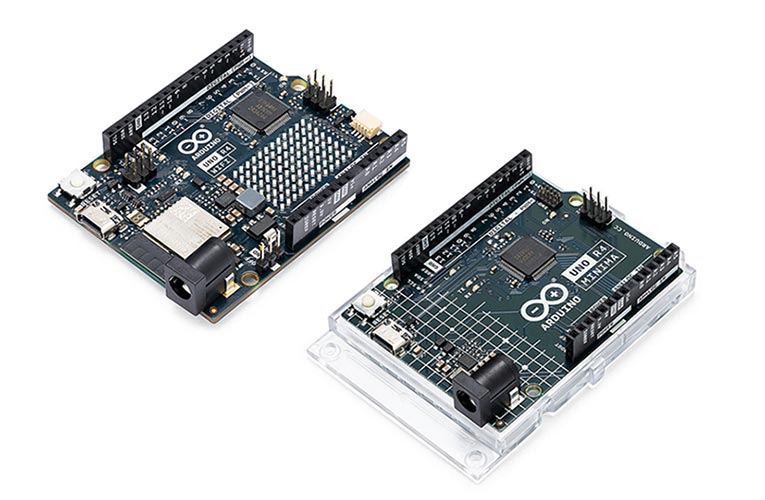
Arduino has unveiled two updated boards for their popular Uno development platform: the Uno R4 Minima and Uno R4 WiFi. These boards, built on the standard Uno form factor, feature the Renesas RA4M1 microcontroller. The Uno R4 leverages this microcontroller to offer new peripherals such as CAN bus and a 12-bit DAC, making it suitable for automation and audio projects. With 16 times more memory and three times the clock speed of the Uno R3, the R4 Minima and R4 WiFi deliver enhanced performance. They also incorporate a USB-C connector on the programming port.
The Uno R4 maintains backward compatibility with shields from previous versions, thanks to its 5V operating voltage and standard Uno pinout. It introduces new power circuitry, enabling it to be powered by up to 24V, making it suitable for higher-powered projects with a single power supply. Additionally, the R4 Minima and R4 WiFi include an onboard op amp for added functionality.
In addition to the processor upgrade, the UNO R4 incorporates other notable enhancements. It adopts the modern USB Type-C connector for efficient data and power transfer. The improved thermal design allows for the power input of up to 24V through the DC power input jack. Furthermore, the inclusion of a 12-bit ADC and a CAN bus expands the board's capabilities, making it suitable for automotive projects and those requiring multiple shield add-ons.
The Uno R4 WiFi, in addition to its features, offers Wi-Fi and Bluetooth Low Energy (BLE) connectivity through its ESP32-S3-MINI coprocessor. It also boasts a fully addressable 12x8 LED matrix, a QWIIC I2C connector for plug-and-play compatibility with existing boards, a real-time clock (RTC), and runtime error diagnostics.

